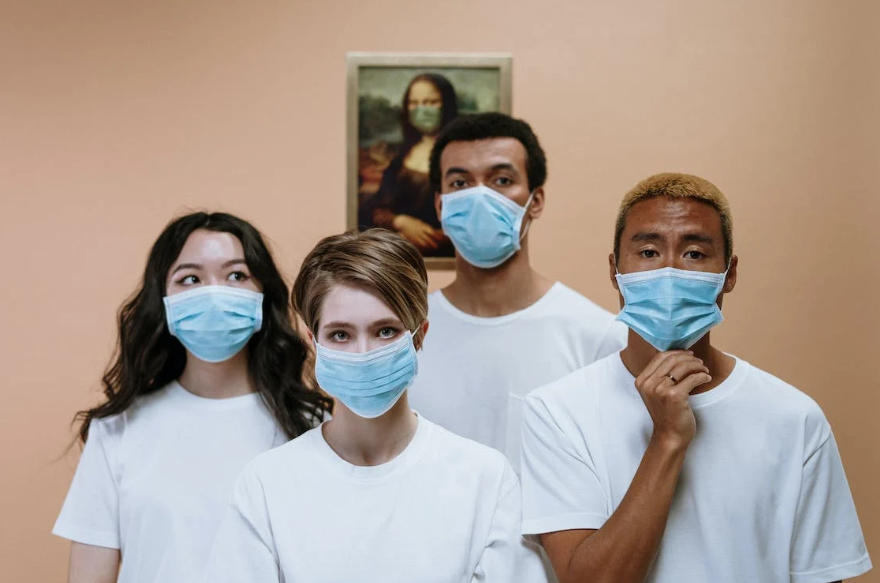We continue to learn about and from our nation’s COVID-19 response. The House Select Committee on the Coronavirus, the Murthy v. Missouri litigation, and the Twitter files have uncovered much about decision-making done during that time. Alabama lawmakers helped restore citizen control over health policy in the aftermath, but significant challenges remain in ensuring health policy reflects our values.
America’s health performance in COVID was poor. The U.S.’s 3,514 deaths per million persons ranked 31st among the 38 OECD countries, according to Our World in Data, putting us much closer to the worst performer (Hungary, 4,921 deaths per million) than the best (Iceland, 499).
Our response also yielded enormous economic, educational and emotional costs. Learning losses from school closures threaten to permanently reduce students’ life prospects, while depression and anxiety surged during the lockdowns.
That public health officials could assume such control shocked many Americans. In Alabama, we learned that the State Health Officer was appointed by a committee formed by the Medical Association of Alabama, not our elected officials. The State Legislature remedied this during the recent session, and the governor will now appoint the state health officer.
I commend our legislators for this. But State Health Officer Dr. Scott Harris exercised powers granted by state law. Further reforms are warranted because, as the Heartland Institute’s COVID analysis puts it, we have “Governors, not Gods.”
Many public health measures were ill-informed. Both Anthony Fauci and Francis Collins, the heads of NIAID and NIH, admitted to the House Committee that six feet of separation for social distancing “came out of nowhere.” We could infer this in real time, because in Europe three feet of separation sufficed. This rule reduced the capacity of businesses, classrooms and sports stadiums, effectively making many schools remain virtual.
Yet public health officials continued to make unsupported pronouncements, like proclaiming that the vaccine would prevent people from getting COVID, something not tracked by the vaccine trials. The CDC also engaged in extensive censorship toward any who questioned their diktats.
The public health profession threatens freedom-loving Americans going forward. Public health officials do not understand the proper role of scientific expertise in a free society, and instead clubbed citizens with “Follow the Science.”
Economist Thomas Sowell observes that due to scarcity, life involves tradeoffs, not solutions. Experts possess specialized knowledge about the tradeoffs they study. Sharing this expertise enables citizens and our elected representatives to make more informed choices.
Public health professionals imposed their decisions on us, reflecting the inclination of paternalistic intellectuals Sowell identifies. But the discipline has also internalized progressive and post-modernist ideologies, like diversity, equity and inclusion (DEI). Far from an innocuous exhortation to treat people fairly, DEI is based on Marxist concepts inconsistent with individualism.
The June 2020 letter signed by over 1,200 professionals during the George Floyd protests epitomizes this. The letter claimed that the gatherings were “vital to the national public health and to the threatened health specifically of Black people in the United States.” The subordination of public health to progressive ideology by officials who had closed churches and prevented funerals likely undermined subsequent guidance.
Red states like Alabama face an enormous challenge, and not just with public health. Blue state liberals frequently dismiss us as anti-science. Yet separating expert knowledge from progressive lies challenges anyone.
Dismissing experts and science altogether is hardly optimal. Genuine knowledge will save lives in a future pandemic, and a public health profession committed to truth over social justice may learn important lessons before the next one comes.
What can be done? Higher education should be a focus as the academy produces research and trains professionals. Red states’ public universities must support real science against junk science serving progressive causes.
For pandemic policy, economist Friedrich Hayek argued that in a free nation the persons exercising emergency powers cannot possess the power to declare the emergency, thus, we should remove the declaration of a public health emergency from the executive branch. Furthermore, we must consider how to empower qualified experts who will provide objective knowledge instead of progressive talking points.
Poor policy decisions yielded excessive deaths and economic costs during COVID. We are beginning to understand why. Americans who value individualism and freedom face an enormous challenge in preventing similar future debacles.
Daniel Sutter is the Charles G. Koch Professor of Economics with the Manuel H. Johnson Center for Political Economy at Troy University and host of Econversations on TrojanVision. The opinions expressed in this column are the author’s and do not necessarily reflect the views of Troy University or the policy or position of 1819 News.
Don't miss out! Subscribe to our newsletter and get our top stories every weekday morning.










